Hall 4
Conflict resolution workshop
Hall 4 Programme
Conflict resolution workshop
9am – 10am BST, 23 September 2025 ‐ 1 hour
Hall 4 Programme
Abstract
Conflict is an inevitable part of professional life, particularly in dynamic and collaborative environments like biomedical science. This informal one-hour workshop offers early career scientists a practical introduction to understanding and managing workplace conflict.
Through relatable examples and accessible strategies, participants will gain insight into common sources of tension, explore the impact of communication styles, and learn approaches to resolving disagreements constructively.
The session will encourage reflection and offer useful frameworks that can be applied in day-to-day lab and team settings.
Learning Outcomes
Attendees will leave with a clearer understanding of how to approach conflict calmly and professionally, fostering more positive and productive working relationships.
Speakers
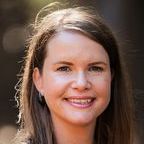
Am I good enough? The reality of imposter syndrome and how to overcome it
Hall 4 Programme
Am I good enough? The reality of imposter syndrome and how to overcome it
10.30am – 11am BST, 23 September 2025 ‐ 30 mins
Hall 4 Programme
Abstract
Imposter syndrome—characterised by persistent self-doubt and a fear of being exposed as a fraud—affects a significant number of professionals across all stages of their careers, including those in pathology and biomedical science.
This session explores the psychological roots and workplace triggers of imposter syndrome, with a focus on its prevalence within the laboratory and clinical environments. Drawing on evidence-based strategies and personal experiences, we will discuss practical tools to recognise, manage, and ultimately overcome imposter feelings. Attendees will leave with a better understanding of how to foster resilience, build self-confidence, and create supportive professional cultures that challenge the stigma of self-doubt.
Speakers
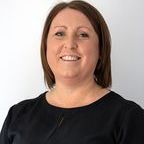
Debra Padgett MSc, FIBMS, CSci, FAHCS (Hon), RCPath (Hon)
Pathology Head of Service, NENC Pathology Operational Lead, Northumbria Healthcare NHS Foundation Trust
Team Motivation – the Military Approach to Leadership
Hall 4 Programme
Team Motivation – the Military Approach to Leadership
11am – 11.30am BST, 23 September 2025 ‐ 30 mins
Hall 4 Programme
Speakers
Capt. Hector Mackenzie
The Leaders Toolkit
Hall 4 Programme
The Leaders Toolkit
11.30am – 12pm BST, 23 September 2025 ‐ 30 mins
Hall 4 Programme
Abstract
Effective leadership is essential for delivering safe, innovative, and high-quality biomedical science services, yet leadership development is often undervalued and underdeveloped within the profession. This presentation highlights how leadership extends beyond formal management roles and can (and should) be demonstrated at every career stage.
Participants will be encouraged to recognise the leadership skills they already demonstrate in daily practice and to identify opportunities for growth. The session will also address the acknowledged leadership skills gap in biomedical science, the challenges of developing future leaders, and strategies for embedding leadership development into routine professional practice. Attendees will leave with insights, resources, and practical tools to support both their own leadership journey and the development of leadership potential within their teams.
Speakers
How to publish your research - A workshop from the British Journal of Biomedical Science team
Hall 4 Programme
How to publish your research - A workshop from the British Journal of Biomedical Science team
2pm – 3.30pm BST, 23 September 2025 ‐ 1 hour 30 mins
Hall 4 Programme
Speakers

AI and digital pathology: time to take a fast track approach
Hall 4 Programme
AI and digital pathology: time to take a fast track approach
4pm – 4.30pm BST, 23 September 2025 ‐ 30 mins
Hall 4 Programme
Pathology is at a pivotal junction—AI and digital technologies now offer opportunities that were inconceivable even a decade ago. Join this session for a thought-provoking journey from the manual lab workflows of the past to the transformative potential of fully integrated, AI-powered pathology. Explore how fast-tracking adoption can accelerate diagnosis, reduce errors, and empower scientists and clinicians to deliver more precise, personalised care. We’ll discuss practical advances already in use, the barriers to routine implementation, and what the lab of 2030 or 2040 could look like. Discover why now is the time to lead the digital pathology revolution.
Speakers
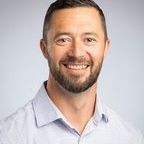
A Diagnostics Industry approach to sustainability
Hall 4 Programme
A Diagnostics Industry approach to sustainability
4.30pm – 5pm BST, 23 September 2025 ‐ 30 mins
Hall 4 Programme
Speakers

Natalka Prychidnyi
Sustainability Lead and Pre-analytics Account Manager, SARSTEDT Limited
Supporting staff undertaking top-up modules
Hall 4 Programme
Supporting staff undertaking top-up modules
9am – 9.30am BST, 24 September 2025 ‐ 30 mins
Hall 4 Programme
Abstract
This presentation explores the challenges and solutions in supporting staff undertaking top-up modules on the route to HCPC registration as biomedical scientists. We will explain why top-up modules are required for graduates from non-IBMS accredited degrees, how degree assessments are conducted, and the rationale behind this HCPC-approved process.
Delegates will also be introduced to the new IBMS digital top-up modules, designed to provide flexible, rigorous, and accessible learning in key clinical specialisms while maintaining academic standards. The session will clarify common misconceptions, outline support mechanisms, and demonstrate how these developments will streamline and strengthen pathways to registration.
Speakers

Reflections Required: OneFile Version 5 and the New Evidence Mindset
Hall 4 Programme
Reflections Required: OneFile Version 5 and the New Evidence Mindset
9.30am – 10am BST, 24 September 2025 ‐ 30 mins
Hall 4 Programme
Abstract
This session provides trainers with practical insight into adapting portfolio evidence to meet the updated 2023 HCPC Standards of Proficiency. While Version 4 evidence often demonstrated knowledge, Version 5 requires candidates to show application, judgement, and reflection.
Through examples of “old vs new” evidence, and strategies for using OneFile effectively, the session highlights how to re-frame existing materials so they demonstrate safe and effective practice. Emphasis is placed on justifications that link evidence to specific standards, helping verifiers see context and relevance. Trainers will gain tools to guide candidates in converting familiar V4 approaches into strong V5 submissions.
Speakers
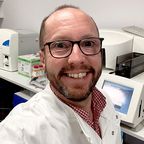
The Modular Mindset – Evidencing Integration of Specialist Knowledge and Practice
Hall 4 Programme
The Modular Mindset – Evidencing Integration of Specialist Knowledge and Practice
10.30am – 11am BST, 24 September 2025 ‐ 30 mins
Hall 4 Programme
Speakers
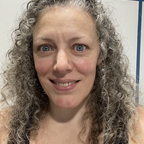
Supporting Multiple Routes to HCPC Registration
Hall 4 Programme
Supporting Multiple Routes to HCPC Registration
11am – 11.30am BST, 24 September 2025 ‐ 30 mins
Hall 4 Programme
Abstract
A pilot Accelerated Graduate Training Programme was started in 2018 at Princess Royal University Hospital PRUH by the General Manager. Recruitment timelines, Induction procedures, contracts and other associated documents were created by the Resourcing Specialist, the Scientific Training Officer and the PRUH Senior BMS/Blood Sciences Training Officer. Philippa also created the 27 Registration PowerPoint presentations, marking schedule, discipline rotations etc for the course. This pilot was successful and it was rolled out to the whole organisation labs in 2020.
The purpose was to condense IBMS Registration Portfolio training, along with value added weekly Specialist topic seminars. Running a comprehensive training programme with deadlines, the 40 or so previous Registration trainees have regularly reached a high portfolio standard with great lab work practice. Verifiers have regularly stated "excellent" in their reports. The candidates have gone on to good things and feedback from Service Line Delivery & Operations Managers has been very positive after interviews for Band 5 BMS roles.
Speakers

Andrea Wilson
Scientific Training Officer, Apprenticeships & Scientific Development Team, Synnovis
The HCPC updated Standards of Conduct Performance and ethics – what are they and what do they mean for registrants?
Hall 4 Programme
The HCPC updated Standards of Conduct Performance and ethics – what are they and what do they mean for registrants?
11.30am – 12pm BST, 24 September 2025 ‐ 30 mins
Hall 4 Programme
Abstract
This session will outline the HCPC Standards of conduct, performance and ethics. It will explain their implications for registrants’ daily practice, and highlight how they support safe, ethical, and inclusive care. Attendees will leave with a practical understanding of how to apply the standards and where to find further guidance.
Speakers
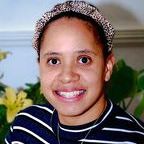
Changing technologies, changing roles, changing shape of the cellular pathology laboratory
Hall 4 Programme
Changing technologies, changing roles, changing shape of the cellular pathology laboratory
2pm – 2.10pm BST, 24 September 2025 ‐ 10 mins
Hall 4 Programme
Speakers
Professor Stefan Dojcinov
Closing The Gap with Advanced Clinical Practice - UK Experience
Hall 4 Programme
Closing The Gap with Advanced Clinical Practice - UK Experience
2.10pm – 2.25pm BST, 24 September 2025 ‐ 15 mins
Hall 4 Programme
Speakers
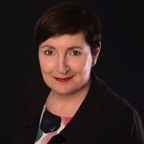
Empowering pathassers (pathology assistants): Dutch standards for training, competency and continued learning
Hall 4 Programme
Empowering pathassers (pathology assistants): Dutch standards for training, competency and continued learning
2.25pm – 2.40pm BST, 24 September 2025 ‐ 15 mins
Hall 4 Programme
Abstract
Pathology assistants (pathassers) play a crucial role in the efficiency and quality of diagnostic pathology. Yet, their full potential is often underutilised due to unclear role definitions, limited professional development opportunities, and insufficient integration in decision-making processes. This presentation explores practical strategies for empowering pathassers, drawn from real-world experience at Erasmus MC and within the Dutch Association of Biomedical Laboratory Scientists (NVML).
Topics include enhancing training programs, fostering critical thinking, improving communication between technical staff and management, and creating an environment where autonomy and accountability can thrive.
By redefining expectations, investing in skills, and recognizing contributions, pathology assistants can become stronger partners in delivering high-quality diagnostics and driving innovation. Attendees will gain actionable insights on building a culture that values and supports pathassers, ultimately improving patient care and laboratory performance.
Speakers
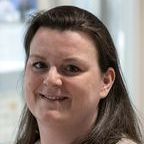
Mastering histodissection: The Irish Learning Curve explained
Hall 4 Programme
Mastering histodissection: The Irish Learning Curve explained
2.40pm – 2.55pm BST, 24 September 2025 ‐ 15 mins
Hall 4 Programme
Abstract
Histodissection is a labour intensive and highly specialised task that has been performed at various levels by Medical Scientists in the UK and Ireland over the last 20 + years. This presentation will explore Ireland's journey in integrating this skill into the Medical Scientist profession, highlighting the learning curve, the challenges encountered, and the obstacles. While the process is still evolving and we have yet to reach our ultimate goal, the experience has provided valuable insights and has meaningfully advanced our expertise as Medical Scientists.
Speakers
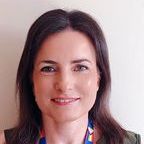
Laura Clifford FACSLM, MSc, BSc
Chief Medical Scientist, Histology, Bon Secours Hospital, Ireland
An eye for detail: Training pathways in anatomical pathology
Hall 4 Programme
An eye for detail: Training pathways in anatomical pathology
2.55pm – 3.10pm BST, 24 September 2025 ‐ 15 mins
Hall 4 Programme
Abstract
This presentation will cover these topics: training and regulation of advanced clinical practice in an anatomical pathology lab in Belgium, the impact of this specialised training, possible improvements in regulation and training, future prospects of these trainings and possible recruitment impact.
Speakers
Closing the gap with advanced clinical practice discussion
Hall 4 Programme
Closing the gap with advanced clinical practice discussion
3.10pm – 3.30pm BST, 24 September 2025 ‐ 20 mins
Hall 4 Programme
Best Practice in preparing for and conducting a virtual assessment
Hall 4 Programme
Best Practice in preparing for and conducting a virtual assessment
4pm – 4.30pm BST, 24 September 2025 ‐ 30 mins
Hall 4 Programme
Abstract
This session shares best practice in delivering virtual assessments for biomedical science qualifications. Building on lessons learned during the pandemic, we will explore how online methods have been refined to ensure fairness, consistency, and compliance with IBMS standards. The presentation will cover assessor training, candidate preparation, technological considerations, and methods for maintaining engagement in a virtual environment.
We will also highlight the flexibility that virtual assessment design offers, from scheduling and preparation through to feedback delivery, and how this adaptability supports both candidates and assessors in achieving effective and reliable outcomes.
Speakers


Managing Laboratory expectations of graduates, new registrants and specialist biomedical scientists
Hall 4 Programme
Managing Laboratory expectations of graduates, new registrants and specialist biomedical scientists
4.30pm – 5pm BST, 24 September 2025 ‐ 30 mins
Hall 4 Programme
Speakers
Advanced practice qualifications
Hall 4 Programme
Advanced practice qualifications
9am – 9.30am BST, 25 September 2025 ‐ 30 mins
Hall 4 Programme
Speakers
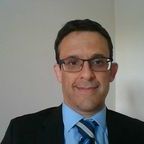
DHSC - Promoting Advanced Practice
Hall 4 Programme
DHSC - Promoting Advanced Practice
9.30am – 10am BST, 25 September 2025 ‐ 30 mins
Hall 4 Programme
Speakers
New roles: the increasing use of non-scientists in the laboratory workforce
Hall 4 Programme
New roles: the increasing use of non-scientists in the laboratory workforce
10.30am – 11am BST, 25 September 2025 ‐ 30 mins
Hall 4 Programme
Speakers
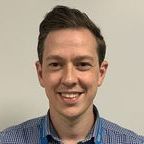
Gareth Richardson
Physiological Science Network Programme Lead and Workforce Development Lead, Greater Manchester Diagnostic Network
Can virtual reality improve real world biomedical science training
Hall 4 Programme
Can virtual reality improve real world biomedical science training
11am – 11.30am BST, 25 September 2025 ‐ 30 mins
Hall 4 Programme
Abstract
Transfusion laboratories face significant challenges in delivering effective training due to staffing shortages and increasing workloads. These pressures often leave limited time for training, resulting in knowledge gaps and, at times, staff performing tasks without full competence, contributing to a rise in transfusion-related errors. In 2024 alone, 869 such errors occurred within laboratories (SHOT, 2025). There is a clear need to explore innovative training approaches that can address these gaps and enhance patient safety.
This presentation examines the potential of virtual reality (VR) as a training tool in biomedical science, focusing on the newly developed ABO and D blood grouping VR app by NHS Blood and Transplant. The app simulates card agglutination techniques used in real-world laboratory settings. Results from a recent MSc study involving undergraduate biomedical science students across several English universities demonstrate that VR training is not only comparable to traditional face-to-face methods but may offer superior outcomes in certain areas. Additional research by NHSBT underscores the broader applicability of VR across biomedical science disciplines to support and improve training delivery.
Speakers
Laura Eastwood BSc (Hons), MSc, DipRCPath, MIBMS,
Consultant Clinical Scientist Trainee (HSST), RCI Barnsley, NHS Blood and Transplant
Supercharging Laboratory Training with VR, AR & Simulation
Hall 4 Programme
Supercharging Laboratory Training with VR, AR & Simulation
11.30am – 12pm BST, 25 September 2025 ‐ 30 mins
Hall 4 Programme
Abstract
Laboratories face growing pressures to train staff safely, efficiently, and at scale. This session explores how Virtual Reality (VR), Augmented Reality (AR), and simulation technologies can transform biomedical science training. From practising rare or risky procedures, to troubleshooting instruments, to rehearsing biosafety incidents, immersive tools provide hands-on experience without consuming reagents or compromising safety.
Case studies highlight early adopters in pathology and transfusion labs and demonstrate how AR can overlay live guidance and connect remote experts. Looking ahead, digital twins and AI-driven adaptive systems promise smarter, more responsive training environments that prepare scientists for the future of practice.
Speakers

HCPC CPD Audit – this is what we want
Hall 4 Programme
HCPC CPD Audit – this is what we want
2pm – 2.30pm BST, 25 September 2025 ‐ 30 mins
Hall 4 Programme
Abstract
The session will run through the requirements and procedures for a CPD audit by the HCPC. It will discuss many of the frequently asked questions received, and the persistent myths that surround the audit process. It will also detail the support and guidance available to registrants and underlines the importance of CPD for the professions the HCPC regulates.
Speakers
CPD Audit - Don’t panic! This is what I did
Hall 4 Programme
CPD Audit - Don’t panic! This is what I did
2.30pm – 3pm BST, 25 September 2025 ‐ 30 mins
Hall 4 Programme
Abstract
Being selected for a CPD audit can sound intimidating, but it really doesn’t need to be! In this session, we’ll share our experiences of going through the process, what we encountered and the lessons we learned along the way. Together, we’ll break down what is expected, show how everyday CPD activities count and offer simple, practical tips for preparing your evidence. Our aim is to reassure colleagues and demonstrate that with the right approach, it’s far less scary than it first seems.
Speakers
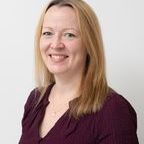
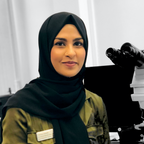
Tahmina Hussain MSc CSci FIBMS
IBMS Council Member and Programme Lead for Applied Biomedical Science Degree, University of Salford, Manchester
New IBMS CPD System – How we support you
Hall 4 Programme
New IBMS CPD System – How we support you
3pm – 3.30pm BST, 25 September 2025 ‐ 30 mins
Hall 4 Programme
Speakers


















